
06 Nov 第四届网络社会年会 | 网民21:超越个人帐户
会议时间
2019年
11月22日
|
11月24日
地点
中国美术学院南山校区南苑报告厅
(拉姆咖啡旁)
参与会议请点击报名
(报名者方可领取同传设备)

会议总召
黄孙权
主办
中国美术学院文化创新与视觉传播研究院
中国美术学院视觉中国协同创新中心
中国美术学院跨媒体艺术学院
承办
中国美术学院跨媒体艺术学院 网络社会研究所
年会学术委员
高士明教授 管怀宾教授 姚大钧教授
陆兴华教授 黄孙权教授

在参与式文化与web 2.0之后,个体出于不同原因而组成的集合形式(assemblage form)又重来一遍,是reddit和4chan,是微信朋友和脸友。我们乐意提供所有生命历程,图像还有GPS的位置,人们的孤单被设计好了(solitary by design)以致于无论何种形式的在一起(togetherness)都变得重要。与现在仍躺在英国伦敦大学玻璃罩的木制棺材中的边沁接收崇拜者和观光客的注意力一样,我们都学会了集体的自我塑像(autoicon)。也许我们更不幸,网络就是我们的生活,今生来世都透明了。人类被颠倒为媒体的延伸,全球近51亿人”自愿地”把生命资料放在被算法加密的、权力者才能看见全貌的资料库中。
在过往前三届的年会,“网络化的力量”,“与列斐伏尔前行:算法时代的都市论与日常生活批判” 和“智慧都市网络(IUF)”,我们连结了各国的专家学者与行动者,开展了当前网络社会的理论批判与行动网络。2019年第四届网络社会年会的主题为“网民21:超越个人帐户”,“21”既指中国网民的21年,又指21世纪全球网络使用者。我们企图从上世纪一个并未认真思考的用语“网民”开始,历史化与社会化当代的符号资本主义,特别是媒体的作用。
90年代中期,中国正式接入国际互联网,网络巨头刚刚起步;随著第一波网际网络泡沫高潮,netizen变成流行语,英国剑桥字典解释很简单:使用网际网络的人(a person who use internet)。如同我们欢悦在新技术工具带来的允诺一样,那时还没人在意一种权力身分的字眼”市民”被接到网络后面是具有深刻的政治意涵与责任的。在1998年7月,中国科学技术名词审定委员会提出正式的中文翻译:网民(Netizen,在台湾与香港,则多翻译成不具政治责任而是朋友关系的网友)。2000年前后中国的QQ、博客、论坛让网络功能从搜索逐渐转变为社交,也开启了用户生产内容时代;后十年的重要变化是移动互联网超过pc互联网,所有网络行为的节律和强度都大大提高。信息接收从文本阅读变为观看实时直播,直至见缝插针的短视频(抖音、快手),早年网络社群的公共性逐渐为个体自我展示取代。网络曾赋予虚拟社会公民的一切主动、激昂的希望(独立媒体、网络行动主义),如今都可以被变成帮独角兽赚钱的自动上传资料员;信息越发及时、时空越发压缩,我们的生活时间越发萎缩;永久在线的社交媒体上却没有社会。在加速的社会中,网民变成了分心而倦怠的帐号(personal account)。
2008年起,中国网民数量超过美国,网络社会的研究、批判无法跳过中国现象,甚至可以说中国已成世界上网络科技与社会之间的矛盾最剧烈的地方。我们需要多重理论视角来透视中国,进而学会以本地的语言讲述全球的故事。
面对这21年的历史,年会分成四个主题:
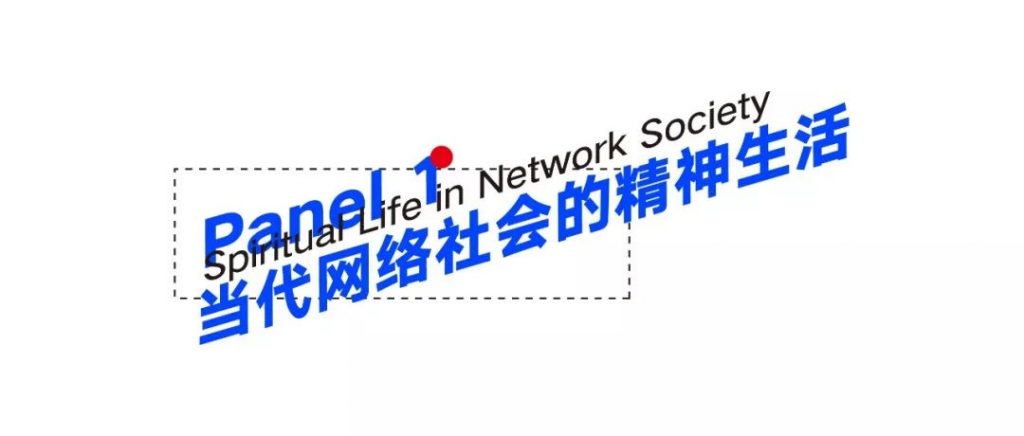
齐美尔捕捉了19世纪大城市生活的面貌:繁忙而孤单的人在流行中找寻认同与独立,现在我们需要捕捉“信息资本主义社会”的症状,包含了知产阶级(cognitariat)那些失去灵魂的情感知识工作阶层,以及生存在零工经济与网上的流众(precariat)。我们都深陷于社会加速的”当下时态萎缩”中,该如何思考自身、所属文化及其再现与世界的关系?
报告人: Franco “Bifo” Berardi (意大利媒体、信息技术理论家) Mark B.N. Hansen (杜克大学艺术、艺术史与视觉研究系教授) 汪凯 (浙江大学传媒与国际文化学院副教授)

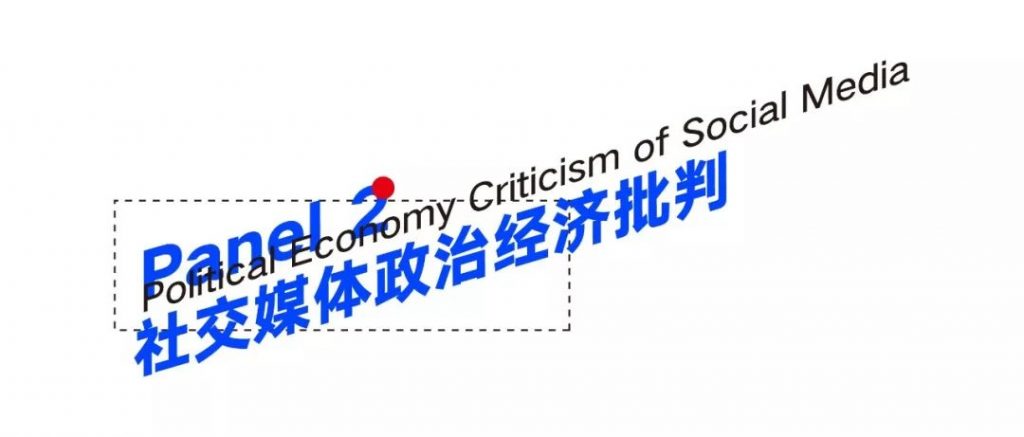
我们的工作、生活,甚至情感交流,都被掌握技术工具的中介者(mediators)所占有了。平台就是媒体、市场与公司,并作为统治者,观看着透明笼子中人类现在与未来的生活。平台接管了社群制造,埋葬了独立媒体,安利化博客、工具化了网民。在全面的社会加速中,我们必须越跑越快才能停在原处。漂泊狂想曲(precarious rhapsody)可以成为共鸣嘛?线上社群能够成为像合作社一样的存在吗?社会运动可以超越魔兽的公会力量?社交媒体的深渊无法跨越?
报告人: 吕新雨 (华东师范大学传播学院院长) 濱野智史 (日本社会学家、批评家) Cleve V. Arguelles (澳大利亚国立大学克罗贝尔亚太事务学院政治与社会变革系) Nishant Shah (阿尔特兹艺术学院研究院副主席)

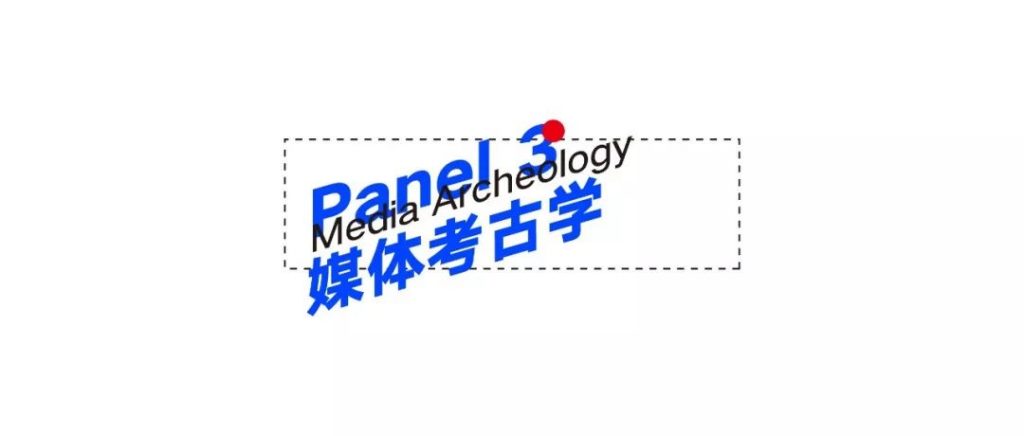
就当代媒体研究而言,新媒体老旧不堪,对社交媒体的批评多来自民间作者(好的新闻记者,或与珪谷甚密却还带点批判风味的老嬉皮,少数的黑庞克们)。学术生产与理论已经被抛得远远,软体研究还没真正浮出台面,从麦克卢汉宣言式与表演式的告白,到Fuller等人倡议的研究取向——邪恶媒体(evil meida),一种无关观者想法而可以自我启动的媒体——我们找到了突破的可能嘛?媒体考古学是方向之一?从天涯、榕树下到今日的社交媒体,从中我们可以理解微信朋友圈、知乎、快手兴起的原因?抑或相反,对当下之分析才能知晓过去的意义,如马克思说的:“人体解剖对于猴体解剖是一把钥匙.低等动物身上表露的高等动物的征兆,反而在高等动物本身巳被认识之后才能理解。”那互连网一开始,我们错失与误解了什么?
报告人: Michael Goddard (西敏大学电影电视与动态影像学系高级讲师) 单小曦 (杭州师范大学人文学院教授) 櫻田和也 (大阪市立大学城市研究中心特约讲师)

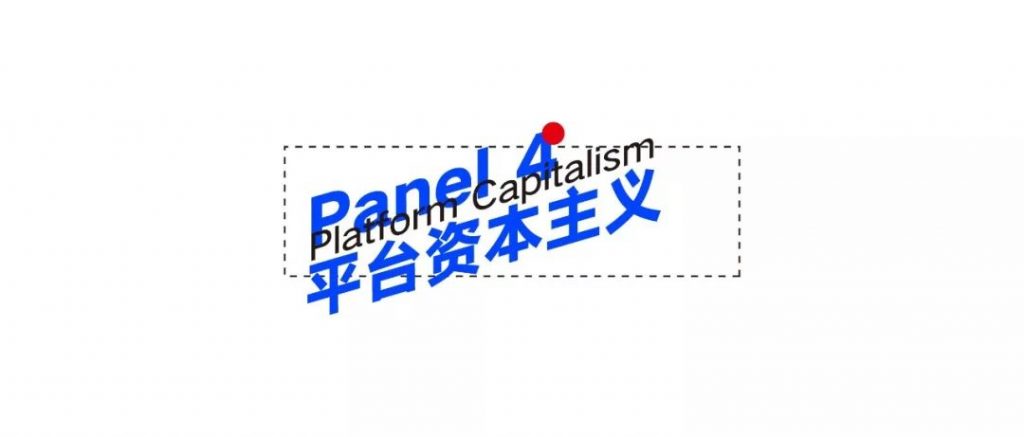
“为什么马克思是对的?”(Terry Eagleton, Why Marx Was Right)听起来像老派的辩驳?马克思一直都在,而鲜少人当真。我们每日辛勤地在键盘上分享美食猫咪与感情,自愿无筹的工作,所以应该对脸书与发起求偿诉求吗?还是要努力学习中国的网红跟快手的直播主,成为这世代文化创意工作者的楷模?实现了点对点的交易,文化生产者与无偿劳动者的生存与认同焦虑就解决了吗?人们为何愿意付网路费用却不喜欢为内容付钱?我们为何轻易接受内容给所有人看但盈余被少数人全拿?或更直接地问:脸书跟微信如何赚钱?劳动价值在其中如何计算?
报告人: Nathan Schneider (科罗拉多大学博尔德分校媒体研究助理教授) Olivia Solis (SHARE Labs 信息设计师)

除了4个panel的主题演讲,我们向全球华人年轻学者与行动者征求对“网民21”四个主题最新观察、研究与实践报告,以“青年学者论坛”的形式呈现中国研究,希望能和与会的国内外学者充分交流。投稿者众,组委会选出了三十篇具研究潜力的论文,邀请青年学者共聚一堂。
年会议程 Program


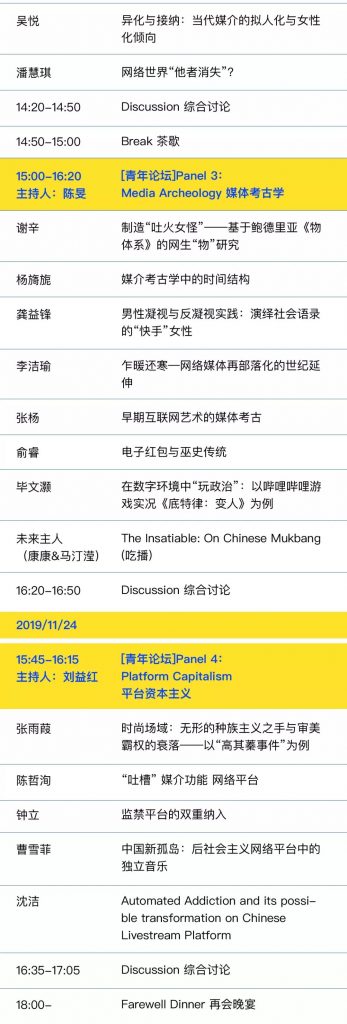

The Fourth Annual Conference of Network Society:
Netizen 21: Beyond Personal Account
Conference Time
2019/11/22—11/24
Conference Location
Nanyuan Conference Room, 1F, Building 3, 218 Nanshan Road, China Academy of Art (Nanshan Camps), Hangzhou
Convener
Huang Sunquan
Host
Institute of Cultural Innovation and Visual Communication, China Academy of Art (CAA)
The Institute for Collaborative Innovation in Chinese Visual Studies, CAA
The School of Inter-Media Art (SIMA), CAA
Organizer
The Institute of Network Society, SIMA, CAA
Committee
Prof. Gao Shiming, Prof.Guan Huaibin, Prof. Yao Dajuin,
Prof. Lu Xinghua, Prof. Huang Sunquan
After participatory culture and web2.0, once again individuals meet for various proposes in different assemblage forms like reddit, 4chan and “friendship” on Wechat and Facebook. We are willing to provide all details of our life, pictures, and GPS locations. Our solitude is designed thus it matters a lot whatever form the togetherness is. We all learn how to be a collective “autoicon”, like the skeleton of Jeremy Bentham now still sitting in a cabinet with glass window, attracting tourists who visit University College London. Perhaps, we are much unluckier since the internet is our life; this life and afterlife are all transparent. Human becomes branches of media conversely. Around the world there are near 51 billion people “voluntarily” give out their data to database encrypted with algorithm where only few authorized persons have full access.
In the previous Annual Conference of Network Society, “Forces of Reticulation” (2016), “Another Walk with Lefebvre: Critique of Urbanism and Everyday Life in the Algorithmic Age”(2017), and “Intelligent Urban Fabric”(2018), INS connects worldwide scholars and activists to construct criticism toward current network society and explore a network of practices together. Entitled “Netizen 21: Beyond Personal Account”, The Fourth Annual Conference of Network Society is going to explore the history of network society in China over the past two decades. Here, “21” refers to both the 21 years since the term “Wang Ming (网民)” (Netizen) being coined, and internet users in the 21st century.
In the middle of 1990s, China officially connected to the international internet and internet giants were just fledgling business then. With the first wave of dot-com bubble, netizen become a popular term whose definition seemed quite simple according to the Cambridge Dictionary: a person who use internet. As we always celebrate the promise made by new technologies, people at that time had not yet recognized the political connotation and responsibility in the word “citizen” coined with “net”. In July 1998, China National Committee for Terms in Sciences and Technologies (CNCTST) gave “Netizen” its official Chinese translation “Wang Ming (网民)”. (While in Taiwan and Hong Kong, it is usually translated as “Wang Yo (网友)” which means friends on the internet literally.) Around 2000s, Tencent QQ, blog and forum turned the main usage of internet in China from searching into socializing. It raised the curtain of an era of user-generated content. In the following ten years, one significant change is that the mobile internet access outstrips those from personal computers. The pace and intensity of all internet usage dramatically increased. The way users receive information shift form text reading to live streaming and even short video watching (e.g. TikTok and Kwai) that fills up every idle moment. Through this process, the commonality in early network community is gradually replaced by self-performance of individuals. The network that once empowered citizens in cyberspace with passion and proactivity (which could be found in independent media and network activism), now becomes channels uploading data automatically for unicorns to make money. The more instantly information spreads, the more completely time and space are compressed. Our life time shrinks; always-online social media is somewhere without society. Eventually, in accelerating society, netizens end up as personal accounts whose owners are exhausted and distracted.
Since 2008, the number of Chinese netizens has surpassed the American ones. Therefore, it is impossible to neglect China while conducting research about network society. It could even be said that China has become the world’s most fierce battlefield between network technologies and the society. We need more theoretical perspectives to see through Chinese phenomena and further to tell a global story using local language.
Facing the 21-year history, The Fourth Annual Conference of Network Society is constituted of four panels:
Panel 1: Spiritual Life in Network Society
Georg Simmel draws the life in 19th century big city: busy yet lonely people looking for a sense of identity and independence through fashion. Today, it is our turn to capture the symptoms of “society of informational capitalism” which includes “cognitariat” and “precariat”. The former are intellectual labours who lose their soul and the later survive through gig economy. Trapped in the “shrinking of present tense” in a accelerating society, how should we think about ourselves, the culture we belong to, and the relationship between its representation and the world?
Panel 2: Political Economy Criticism of Social Media
“Why Marx was right?” (Title of Terry Eagleton’s 2011 book) Does it sound like a cliché-ridden rebuttal? Marx is always there, yet few take it serious. Every day we diligently share our food, cat and affair, voluntarily doing an unpaid job. Therefore, should we accuse Facebook and claim for our wages? Or, should we learn from Chinese internet celebrities and Kwai live streamers as a model of creative worker in this generation? Does the realization of P2P transaction an antidote to the survival issue and identity crisis of cultural labor? Why are people willing to pay for the internet access but not the content they find on the internet? Why do we easily accept that all contents should be open to everyone but the benefits are taken by a minority? Perhaps, the question should be asked in a more direct way: how do Facebook and WeChat make their money? and how does the labor value be calculated?
Panel 3: Media Archeology
“New media” seems old-aged to contemporary media study. Criticism of social media largely comes from authors outside the academy like some outstanding journalists, old hippies who are close to the Silicon Valley but in a critical distance, or few hackactivists. The production of academic research and theory is left far behind; software study has not yet dominated the stage. From Marshall McLuhan’s performative and manifesto-like confession, to the research approach proposed by Matthew Fuller et al.——evil media, a self-driven media that has nothing to do with the spectator——have we found the possibility to overcome? Is media archeology a way out? Could we understand how Wechat Friends’ Circle and Kwai work as we see Tianya Club or Rongshuxia (Tianya is an internet forum and Rongshuxia is a portal site of internet literature. Both were founded in late 1990s in China.)? Or maybe we should think conversely that only through the analysis of the current we would realize the meaning of the past. As Marx said: “Human anatomy contains a key to the anatomy of the ape. The intimations of higher development among the subordinate animal species, however, can be understood only after the higher development is already known.” Then, what did we miss and misunderstand when the internet emerged?
Panel 4: Platform Capitalism
Our work, life and even relationship are dominated by mediators that control the technology. The platform is the media, market and corporation. Besides, as a dominator, it watches the now and future life of humans housed in a transparent cage. The platform takes over the reins of community building, buries independent media, Amwayizes blogosphere, and instrumentalizes netizen. In an accelerating society, we have to run faster in order to stand at the same place. Could “precarious rhapsody” become a kind of resonance? Could online community become something like a cooperative? Could social movement surpass the power of fans’ union of World of Warcraft? Is it impossible to cross the social media abyss?
Besides the invited keynotes, we call for young scholars and activists worldwide to submit papers on the four panel topics. “Young Scholars’ Forum”welcomes you to present your latest research and practice and interact with international scholars participating the annual conference.


视觉设计:偏飞设计事务所



